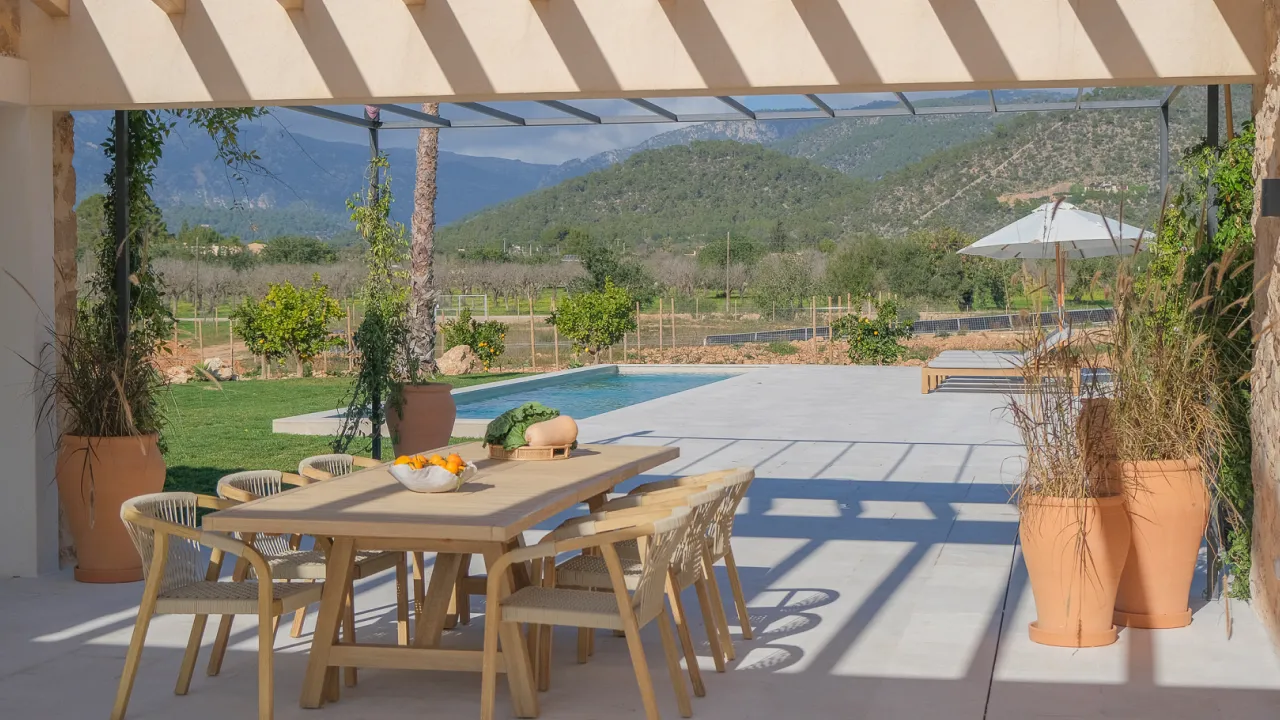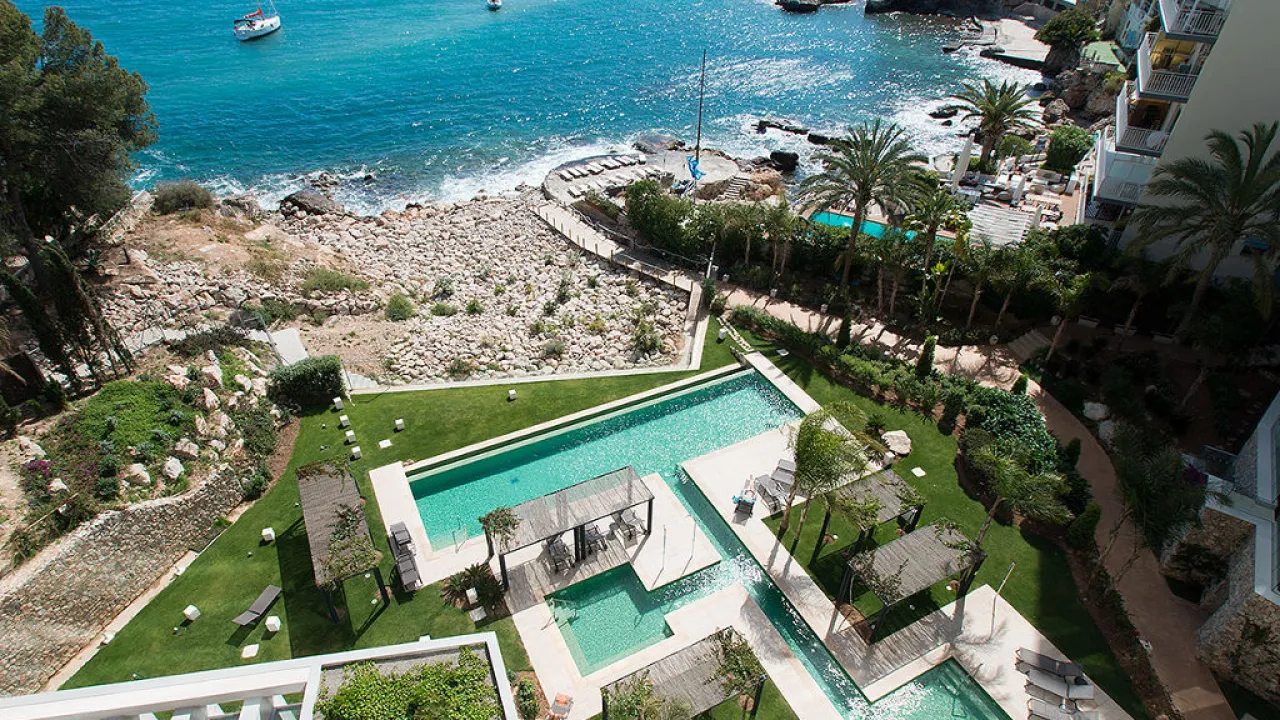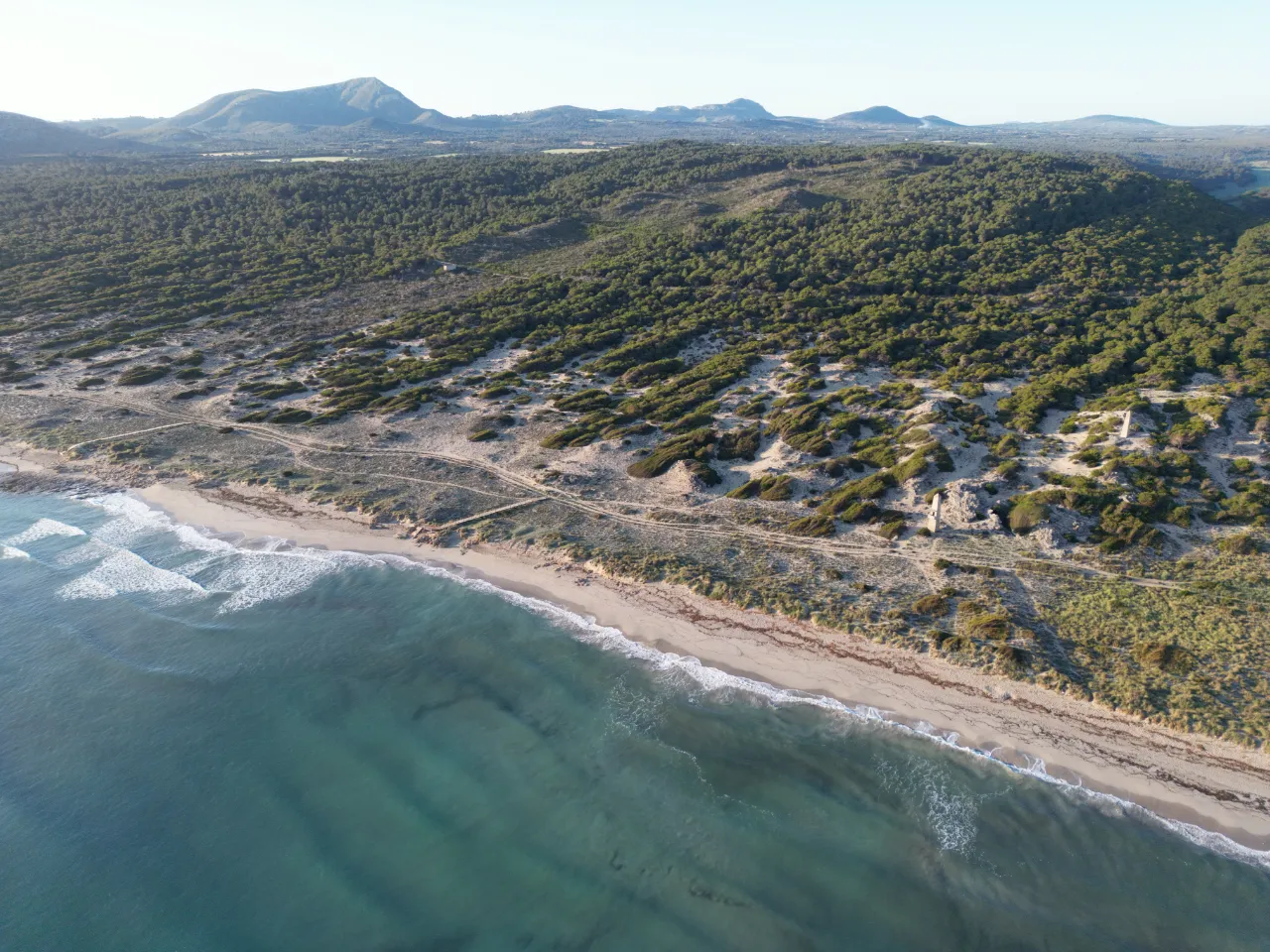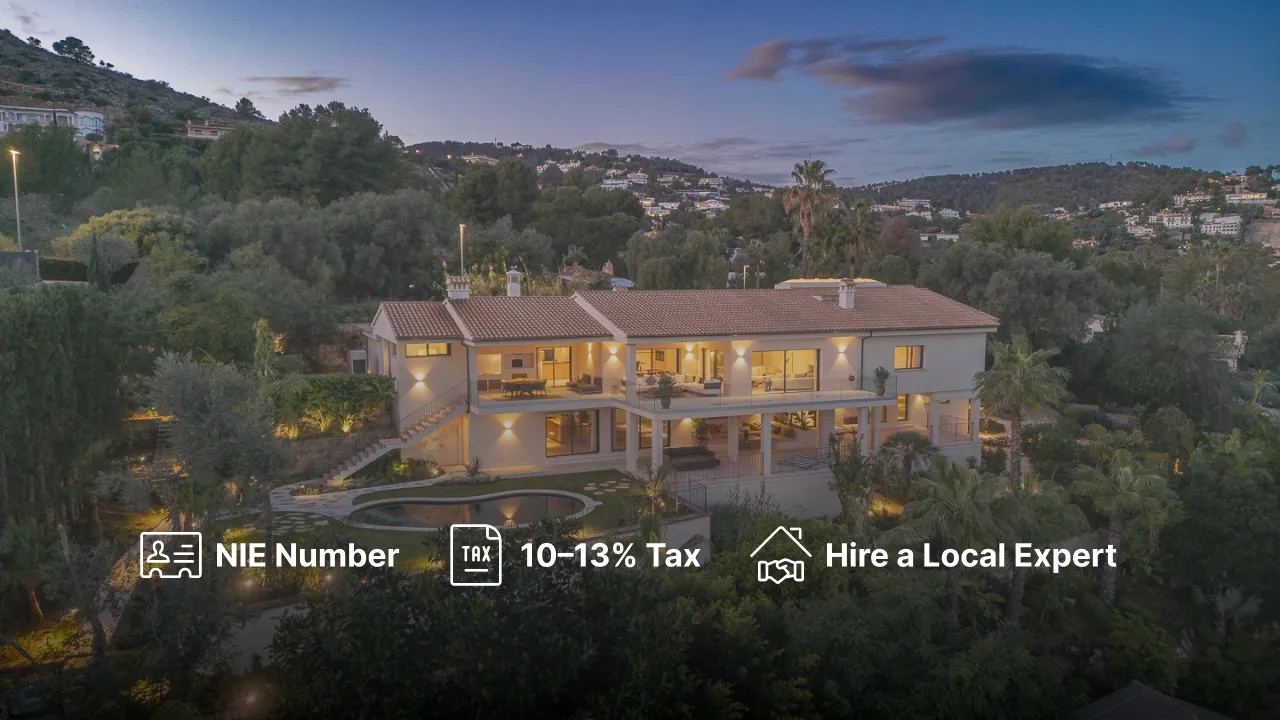The question: Should I buy or rent in Mallorca? The answer: It depends… Buy if you want long-term stability and investment growth, rent if you need flexibility and lower upfront costs (or if you simply want to try out the Mediterranean lifestyle before investing).
Analyzing the Decision-Making Process
When considering the options of buying vs. renting property in Mallorca, potential investors must carefully evaluate their unique circumstances and long-term goals. This decision-making process typically involves several key elements. High net worth individuals should assess their financial readiness, lifestyle preferences, and investment strategies when determining which option is best suited for them.
Key Elements to Consider Before Making a Choice
Potential buyers and renters should focus on various factors that can influence their choice:
| Factor | Buying Property | Renting Property |
|---|---|---|
| Upfront Costs | Higher initial investment required (e.g., down payment, closing costs) | Lower upfront costs (first month’s rent, security deposit) |
| Long-Term Plans | Better suited for those seeking stability | Ideal for individuals needing flexibility and mobility |
| Market Conditions | Susceptible to real estate market fluctuations | Less impacted by market volatility |
| Maintenance Responsibilities | Homeowners are responsible for all maintenance | Landlords typically handle maintenance issues |
| Ownership Benefits | Opportunity for property appreciation and equity building | No long-term investment gain |
Ultimately, understanding the nuances of both buying and renting in this beautiful Mediterranean location will help you to make choices that align with your financial goals and lifestyle desires.
Our recommendation: If you are unsure whether to buy or rent, consider renting a property for a short period of time (3, 6 or 12 months). This will allow you to experience the area, the market and the local lifestyle first hand. Once you feel confident, you can make an offer on a property and take the next step toward ownership. Need help? Contact us and will guide you through it all, step-by-step.
Pros of Buying Property in Mallorca
For individuals considering their housing options in Mallorca, purchasing property comes with several significant advantages.
1. Long-Term Investment Potential
Investing in real estate can offer significant long-term financial benefits, especially in Mallorca, where the appreciation value of a property can reach up to 19% annually. Properties often appreciate in value, making them a sound investment for individuals looking to secure their financial future. This growth in value can provide substantial returns, especially in desirable locations like Mallorca.
| Time Period | Average Property Price Increase (%) |
|---|---|
| 1 Year | 12% |
| 5 Years | 60% |
| 10 Years | 120% |
This table illustrates the potential for property price appreciation over time. High net worth individuals may find that buying property not only provides immediate living benefits but also builds equity in the long run.
2. Stability and Control Over Property
Owning a property allows individuals to enjoy stability and control over their living environment. Unlike renting, buyers can make modifications to their homes, enhancing their personal space to meet their preferences.
With ownership, they have the freedom to choose the interior design, landscaping, and upgrades, which contributes to increased comfort and satisfaction in their living space. This control can lead to a more personalized experience in a sought-after locale like Mallorca.
Take a look at these luxury properties for sale in Mallorca ⇒
3. Chance for Property Appreciation
The potential for a home to appreciate by up to 19% a year is what has attracted many to invest in the Mallorca property market. Unlike renting, where monthly payments do not contribute to ownership, buying a home represents a tangible asset that can increase in value.
In addition to appreciation, ownership may provide tax benefits that can improve overall returns on investment. Some buyers may also choose to invest in properties in high-demand areas like Bendinat, Illetas, or Palma’s Old Town, to further increase the likelihood of property appreciation.
Visit the best towns to invest in Mallorca ⇒
Purchasing property is an appealing option for high-net-worth individuals looking to invest in Mallorca, offering advantages such as long-term investment potential, stability, and opportunities for appreciation. These factors can play a significant role in the decision-making process when weighing the options of buying vs. renting.
Cons of Buying Property
Buying property in Mallorca is not all pros and comes with several drawbacks. But understanding them can help in making an informed decision in the buying vs. renting debate.
1. Initial Financial Investment
The initial costs associated with buying property can be substantial. Aside from the purchase price, there are additional expenses that potential buyers must consider, including:
| Expense Type | Estimated Cost Range |
|---|---|
| Down Payment | 5% – 15% of the purchase price |
| Notary Fees | 1% – 2% of the purchase price |
| Registration Fees (Stamp Duty – AJD) | 1.5% – 2% of the purchase price (for new builds) |
| Transfer Tax (ITP) | 8% – 13% of the purchase price (for resale properties) |
| VAT (IVA) | 10% of the purchase price (for new properties) |
| Property Tax (IBI) | 0.4% – 1.3% of the property’s value annually |
These upfront financial commitments can be a significant burden, especially for those who are not prepared for such an investment.
2. Maintenance Costs and Responsibilities
Homeownership comes with ongoing responsibilities that can lead to additional costs. Property owners are accountable for regular upkeep, which can include repairs and maintenance of the property. This includes:
- Landscaping and garden maintenance
- Roof repairs
- Plumbing and electrical issues
- Appliance repairs
These expenses can accumulate quickly, especially if unexpected issues arise, making them a key consideration in the buying process. For insights into how to manage these costs, check our article on buying a rental property.
3. Market Volatility and Risk
The real estate market can be unpredictable. Factors such as economic conditions, interest rates, and local market trends can greatly influence property values. Individuals investing in Mallorca should be aware of the potential for:
- Decreased property value due to market fluctuations
- Difficulty in selling the property when needed
- Extended periods without rental income if the property is investment-based
Understanding these risks is essential for making confident investment choices. For more information on investment strategies, explore our article on buying investment property.
Pros of Renting Property in Mallorca
Renting property in Mallorca presents its own several advantages that can also be appealing to high net worth individuals considering their options between purchasing and leasing real estate. Below are key benefits that highlight why renting may be the preferred choice for some.
1. Flexibility and Mobility
Renting offers substantial flexibility and mobility, which is ideal for individuals who may not want to commit to a permanent residence. With lease agreements typically ranging from six months to a year, renters have the freedom to relocate easily based on personal or professional needs. This is particularly beneficial for those exploring different areas in Mallorca or anticipating lifestyle changes.
| Rental Term Options | Duration |
|---|---|
| Short-Term Lease (holiday rentals) | 1 to 6 months |
| Standard Lease | 6 to 12 months |
| Long-Term Lease | 12 months and beyond |
2. Lower Upfront Costs
The initial costs associated with renting are significantly lower than buying. Renters in Mallorca typically provide 3 months’ rent upfront – 1 month for the deopist, 1 for the first month, and 1 for the real estate agency. The rental deposit could be more, depending on the property owner.
This lower financial barrier can allow individuals to allocate funds to other opportunities, such as investments or personal interests.
| Cost Type | Estimated Amount |
|---|---|
| Security Deposit | 1 month’s rent (can vary depending on the property owner) |
| First Month’s Rent | 1 month’s rent |
| Agency Fee | 1 month’s rent |
| Total Upfront Cost | Approximately 3 months’ rent |
3. Limited Maintenance Responsibilities
Renters often benefit from limited maintenance responsibilities since landlords typically handle property upkeep. This arrangement frees up time and reduces stress for renters, allowing them to focus on enjoying their living space without the burdens of repairs or upkeep. Additionally, this lessens the financial risk associated with unexpected maintenance expenses, which can be significant for homeowners.
By considering these advantages of renting, individuals can make an informed decision in the ongoing debate of buying vs. renting. For further insights into acquiring rental properties, refer to our article on buying a rental property.
Cons of Renting Property
While renting offers certain benefits, those same benefits can sometimes have significant drawbacks that impact long-term satisfaction and financial strategy.
1. Lack of Ownership Benefits
Renters do not experience the advantages that come with owning a property, such as building equity over time. This means that payments made each month do not contribute to an asset that can appreciate.
For individuals considering buying a rental property, it’s essential to understand that their investment in real estate can yield returns, whereas rented properties do not provide this financial benefit.
Note: In some cases, property owners in Mallorca may offer an “alquiler opción a compra” agreement, allowing tenants to rent with the option to purchase the property over time. It is advisable to review such arrangements carefully with a trusted real estate professional.
2. Restrictions on Property Modifications
In many rental agreements, tenants are often limited in making modifications to the space. This can include restrictions on painting walls, renovating kitchens, or even changing fixtures.
For individuals wanting to personalize their living environment, these limitations can be frustrating. Homeowners, on the other hand, have the freedom to modify their properties as they see fit, aligning their homes with their personal tastes and needs.
3. Renting Costs Over Time
Although renting may seem cost-effective in the short term, the long-term costs can add up. Rent payments can steadily increase, often exceeding the costs of mortgage payments over time.
Moreover, renters may find themselves in cycles of paying rent without obtaining any ownership benefits. An analysis of potential costs can be useful when considering whether to continue renting or to pursue buying investment property.
| Renting Costs Over Time | Year 1 | Year 5 | Year 10 |
|---|---|---|---|
| Average Monthly Rent | €1,200 | €1,300 | €1,500 |
| Total Rent Paid | €14,400 | €78,000 | €180,000 |
These factors can weigh heavily on the decision-making process when assessing [buying vs. renting]. Understanding the limitations and potential future costs associated with renting can help individuals determine if purchasing property is a more suitable option for their investment goals or relocation plans.
Conclusion
In short, deciding whether to buy or rent property in Mallorca ultimately comes down to your personal goals, financial situation, and lifestyle preferences. Buying offers long-term investment potential, stability, and greater control, while renting provides flexibility, lower upfront costs, and fewer maintenance responsibilities.
If you’re unsure, starting with a rental can be a smart way to experience the local lifestyle before committing to a purchase. Wherever you are in your journey, seeking expert guidance can help you make the best decision for your future in Mallorca.
Frequently Asked Questions (FAQs)
1. Is it better to rent before buying property in Mallorca?
In some cases, yes. Renting first can be a smart strategy. It gives you time to explore different neighborhoods, experience the local lifestyle, and understand the market before making a major investment. Renting short-term (3, 6, or 12 months) can help you make a more informed and confident decision when you’re ready to buy.
2. How do property taxes differ between renters and buyers in Mallorca?
Homeowners are responsible for paying property taxes such as IBI (Impuesto sobre Bienes Inmuebles) annually, while renters typically are not. Renters may only be responsible for utilities and minor rental expenses, but property taxes remain the owner’s obligation. This is an important cost factor to consider when deciding whether to buy or rent.
3. What happens if the Mallorca property market fluctuates after I buy?
Real estate markets naturally experience cycles. If you buy property and the market dips, you may need to hold onto it longer to realize gains. However, Mallorca’s strong long-term growth trends (up to 120% over 10 years) can offset short-term fluctuations, making it a resilient market for patient investors.
4. Can I negotiate a “rent-to-own” agreement in Mallorca?
Yes, some owners offer an “alquiler opción a compra” (rent-to-own) agreement, allowing you to rent now with the option to purchase later. Terms vary, so it’s crucial to negotiate carefully and work with a trusted real estate professional to ensure the agreement protects your interests.






